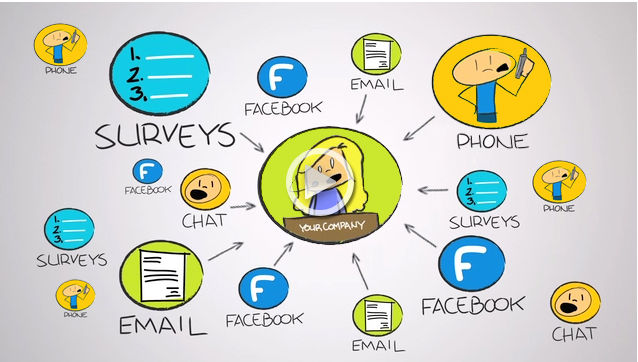August 28, 2025
This Week in CX: Rethinking Loyalty and AI in the Age of Gen Z

Happy Friday! ‘This week in CX’ brings you the latest roundup of industry news.
This week, we explored how loyalty programs are evolving for Gen Z, the rise of digital-first service technologies, and the surprising gaps in AI adoption within banking contact centres.
We’re also discussing new updates from Spotify, Bloomberg, Reuters, and more.
Key news
- Playtime is not over, says Lego, as the toy giant saw sales rise 12% in the first half of the year to reach a record of 34.6bn Danish crowns (€4.6bn; £4.0bn) in spite of global trade tensions. Partnerships with other high-profile brands such as Formula One and Jurassic Park helped Lego reach a diverse group of consumers and gain market share, Reuters reports. The Danish company outpaced the wider toy market, which grew by nearly 7%. CEO Niels Christiansen also highlighted that 60% of Lego’s purchased materials will come from renewable sources this year.
- German sneaker and athletic wear giant Puma saw its share price skyrocket thanks to reports that the Pinault family is considering offloading its stake in the company. The Pinaults, who founded the luxury group Kering and control 29% of Puma through holding company Artémis, have contacted potential bidders including China’s Li Ning and Anta Sports, according to a Bloomberg report. Puma has lost around half of its market value this year, with a new CEO taking the helm in May and promising a “reset” for the struggling brand.
- The U.S. is warning nations that tax or regulate American tech companies that it could retaliate with tariffs and other measures if restrictions aren’t eliminated. President Donald Trump made the threat on social media, promising “substantial” penalties – including export restrictions on U.S. chips – on countries with digital services taxes. The move would help tech giants like Google and Meta, which have been the subject of scrutiny overseas. Similar threats have already convinced Canada to back down from its own proposed digital tax.
- Spotify will raise subscription prices in some markets, co-president Alex Norström told the Financial Times, confirming a previous announcement made earlier this month. He said the increases would be paired with new services and features designed to add value and create “stickiness” for subscribers. After years of holding prices steady, Spotify began lifting them two years ago, a shift that, combined with cost-cutting, delivered its first annual profit in 2024. Recent product additions include a DJ tool that lets users create track transitions for playlists.
CXM news stories
Here’s the full news stories that CXM have reported on in the past week. Learn all about the latest news about consumers’ opinions on brand loyalty and banking, as well as the latest acquisitions in the CX world.
New Survey Reveals Summer Is the New Holiday Rush
According to the latest Vertex survey, retail and e-commerce activity is no longer confined to the traditional holiday season. Instead, new waves of consumer spending are surfacing during summer months and other times once considered “off-peak,” creating fresh challenges and opportunities for retailers and tax professionals alike.
Traditionally, the busiest shopping stretch ran from Thanksgiving through Christmas Eve. But today, heightened activity is being fueled outside of the winter holidays by summer travel and recreation, back-to-school purchases, and even Halloween costume shopping. These shifts are reshaping how businesses plan for and navigate multiple high-demand periods throughout the year.
“Consumer-facing businesses are already navigating a complicated landscape in 2025. They shouldn’t also have to worry about whether their technology solutions and tax tools are equipped to handle the influx of activity around peak summer shopping and seasonal promotions,” said Sal Visca, Vertex Chief Technology Officer. “Vertex supports its retail customers through all transactional peaks and valleys, so they can rest assured that whether they’re scaling seasonal promotions or managing steady day-to-day operations, they have a trusted partner ensuring every transaction and tax amount is accurate and compliant.”
Consumer Behaviour is Key
With economic uncertainty influencing buying habits, more than half (53%) of shoppers report buying earlier to avoid price hikes and product shortages. Millennials and Gen Z, in particular, are adjusting how and where they shop, looking for tax-free savings and seasonal sales both online and in-store.
For retailers, these evolving patterns make seamless tax management more critical than ever. Consumers expect a frictionless checkout experience across all channels, but keeping pace with rapidly changing sales cycles requires automation. Vertex data highlights why: during the summer months, 76% of consumers purchase clothing and accessories, 71% invest in hobbies, 65% buy sunscreen, 41% pick up beach gear, and 34% opt for water toys. Each of these categories comes with tax nuances that businesses must handle precisely. Automated tax platforms simplify compliance by ensuring every SKU is mapped and taxed correctly, reducing errors, accelerating product updates, and supporting retailers during periods of high transaction volume.
Additional Insights
- Hybrid shopping dominates: 55% of consumers prefer a mix of in-store and online shopping for summer purchases, outpacing online-only shoppers by 34%. Retailers must therefore prioritise accuracy and efficiency across both channels.
- Sales events drive spending: 69% of shoppers take advantage of summer holiday weekend promotions, from discounts on flip-flops to markdowns on fire pits. While these deals attract consumers, they also introduce tax compliance challenges, making automated, up-to-date tax solutions essential.
As consumer spending patterns shift, businesses must prepare for “multiple holidays” throughout the year, not only the end-of-year rush.



